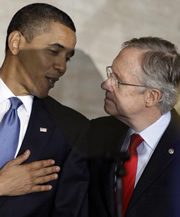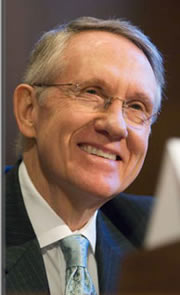Thu 19 May, 2011
Goodwin Liu’s nomination successfully filibustered
Comment now Filed under: Politics| Tags: Goodwin Liu, Judicial nominations, Reparations for slavery, U.S. Senate |
 As anticipated by my lengthier blog post this morning, Professor Goodwin Liu’s nomination to be a federal appellate judge has been successfully filibustered by Senate Republicans opposed to his judicial philosophy.
As anticipated by my lengthier blog post this morning, Professor Goodwin Liu’s nomination to be a federal appellate judge has been successfully filibustered by Senate Republicans opposed to his judicial philosophy.
The vote was 52-43 in favor of voting on the nomination, but the motion to invoke cloture and take an up-0r-down vote on Liu required the support of at least 60 senators.
In all likelihood, this vote means that Liu’s nomination is effectively dead. This was almost certainly a foregone conclusion, and the cloture motion here was being used by Senate Democrats as a way of putting Republican opponents on record as filibustering this nomination before next year’s elections.
For more on Liu’s nomination, including the role of our organization and its PBS documentary, Traces of the Trade: A Story from the Deep North, see here.


